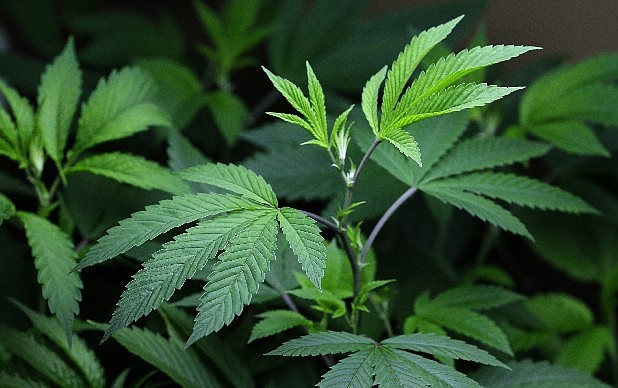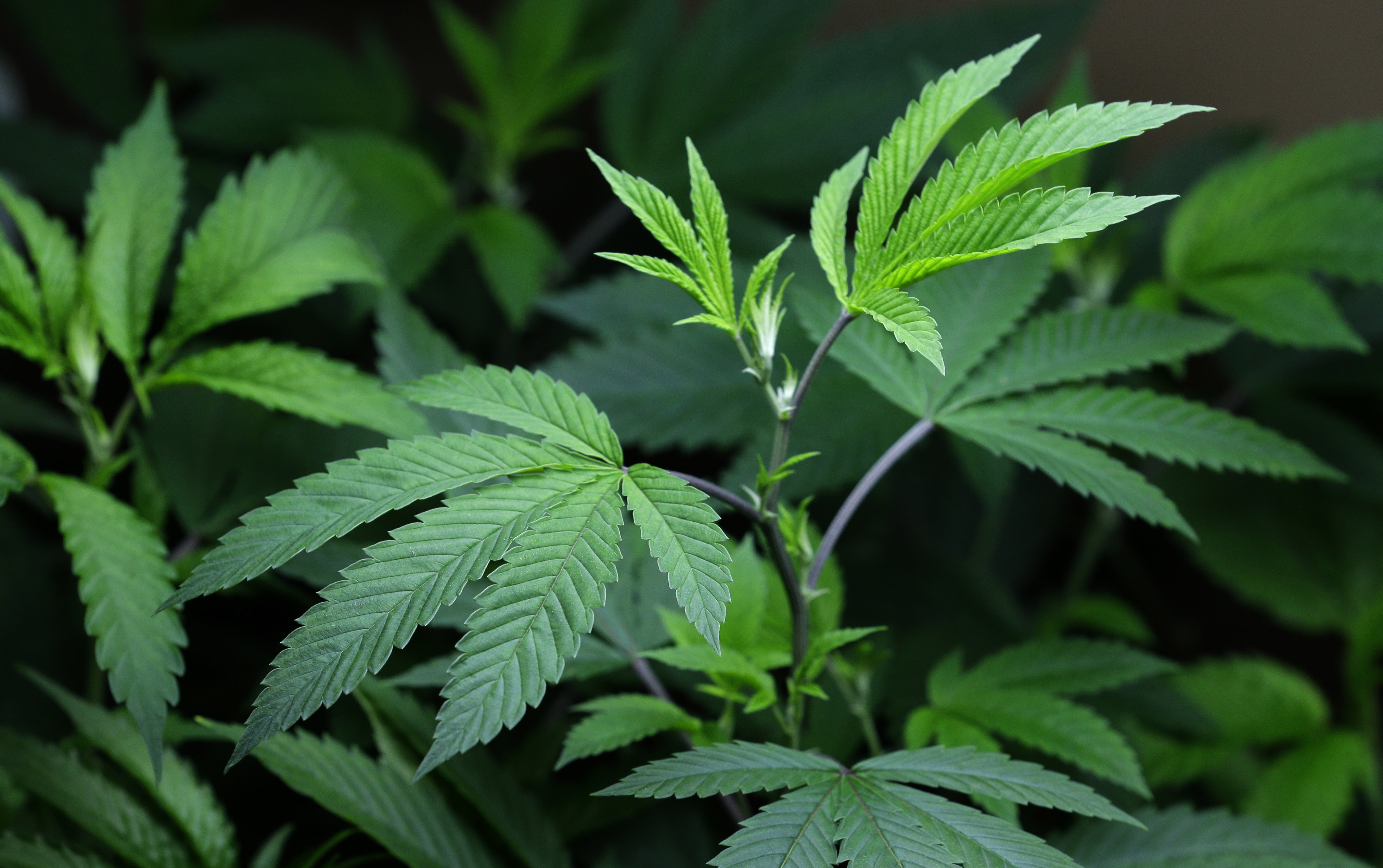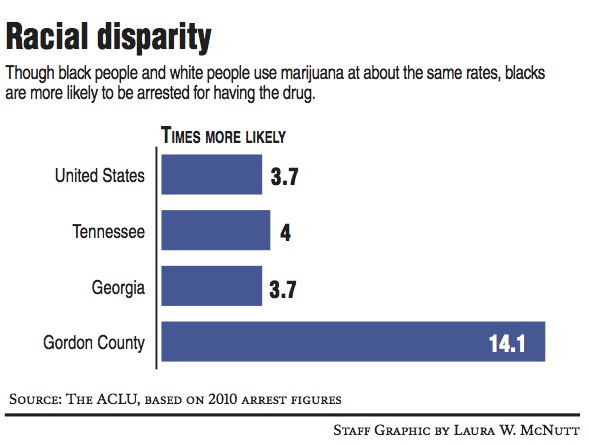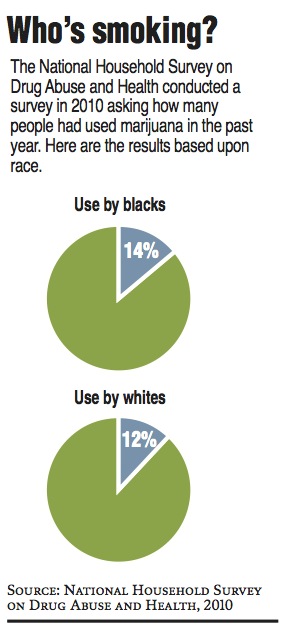CALHOUN, Ga. - When he merged onto Interstate 75, Jonta Melik Gaines said, he watched a car thunder past him on the left, way too fast.
Then he saw a Gordon County Sheriff's Office vehicle approaching from behind. Gaines, 37, figured the deputy was trying to catch the speeder.
But that's not what happened. Deputy Dale Pullen steered behind Gaines' 1997 Chevrolet Tahoe, about a car-length away.
Gaines kept driving.
And Pullen kept following.
"This guy's going to mess with me," Gaines said he told himself during the afternoon drive in January 2013. "You just get this feeling in the pit of your stomach."
About five miles down the road, Gaines said, Pullen finally pulled him over. He said Gaines was weaving out of his lane. Then he said something smelled funny in Gaines' truck, and Gaines confessed. Inside the glove compartment, he told the deputy, you'll find a Mason jar containing marijuana -- 2.3 ounces in all.
More than a year later, Gaines still disputes Pullen's reason for stopping him.
"I know why he pulled me over," he said. "It was DWB [driving while black]. Common sense will tell you. Why are you following this guy for five miles?"
Gaines, who was driving from Atlanta to his home in Chattanooga, had never heard of Gordon County. But he wasn't surprised to learn that the American Civil Liberties Union highlighted the North Georgia county for a particularly high racial disparity in marijuana possession arrests.
Even though the National Household Survey on Drug Abuse and Health indicates that black people and white people use marijuana at about the same rates, the ACLU points out that black people across the country are about 3.7 times more likely to be arrested for having the drug.
In Gordon County, though, the rate is much higher. Blacks there are 14.1 times more likely to be arrested on possession charges than are whites. According to the ACLU's report "The War on Marijuana in Black and White," that's the seventh-largest racial disparity among counties in the United States.
Blacks accounted for 36.7 percent of Gordon County's marijuana possession arrests in 2010, but black people make up only 3.8 percent of the county's overall population.
In Gordon, many of the people arrested for marijuana possession are passing through town, like Gaines. And, like Gaines, about one-quarter of those arrests take place on Interstate 75. Some experts say the figures suggest that officers and deputies are targeting people from out of town, people who don't know anyone with power in the area.
On Wednesday, Chief Deputy Robert Paris said members of the Gordon County Sheriff's Office had not seen the ACLU's findings, which were released last year.
"Our senior officers are reviewing that document now," Paris said in an email. "It is our understanding that this report concerns the years 2001 to 2010. As Sheriff [Mitch] Ralston did not take office until Jan. 1, 2009, any questions regarding the operation of the sheriff's office between 2001 and 2008 would more properly be directed to former sheriff Jerry Davis, who held office between Jan. 1, 2001, and Dec. 31, 2008."
In fact, Paris had the dates wrong. The ACLU's statistics about racial disparity are based on 2010 arrest figures. And according to FBI data, the racial disparity in Gordon County has almost tripled since Ralston took office.
From 2006 to 2008, black people were 4.1 times more likely than whites to be arrested for marijuana possession in Gordon County. From 2009-11, blacks were 11.7 times more likely than whites to get arrested for pot possession.
Paris added that this disparity does not exist with all drugs in Gordon County. From 2009-14, according to figures supplied by Paris, white people accounted for 85.2 percent of defendants arrested for methamphetamine possession. By comparison, black people accounted for 4.4 percent of those defendants.
But, concerning marijuana possession, what's going on in Gordon County? That's tough to say.
Members of the ACLU and many academics have studied marijuana. But they have done so in major metropolitan areas, like New York City. They have concluded that police often target low-income areas, where they can stop and frisk citizens without much legal pushback, since poor people usually can't afford to fight back and hire lawyers.
But Gordon County is nothing like New York City, and a Times Free Press analysis of every marijuana possession arrest made in the county in 2013 does not show any particular areas of the county in which deputies and police officers make a lot of arrests. Likewise, the analysis did not show a cluster of defendants living in the same area, implying that law enforcement is not targeting specific neighborhoods in Gordon County.
However, experts say two other figures are significant: 24 percent of the arrests in 2013 occurred on Interstate 75.
Fifty-three percent of those arrested did not live in Gordon County.
Chris Paul, who since 2005 has served as public defender in the Cherokee Judicial Circuit that covers Gordon and Bartow counties, said he has not looked at the statistics in his area. However, in recent years he has noticed an increase in traffic stops on I-75, a known route for drug dealers traveling from Miami or Atlanta.
Paul said the increase in highway stops raises questions about who deputies and troopers choose to pull over.
"There are often complaints that there is a great frequency in racial profiling," he said. "It's awful tough to disprove that."
Matthew Fogg, a former U.S. marshal in Washington, D.C., and a critic of what he describes as racial profiling by law enforcement, said the highway arrests carry the same principle as the drug bust operations he used to participate in. Fogg was a marshal for 30 years, and he said in a telephone interview that his supervisors used to order him to target poor communities.
If informants gave him solid evidence about drug operations in a rich, mostly white neighborhood, Fogg said, his bosses would tell him to ignore it. Those targets might be well connected, might know a judge or a senator. And those judges and senators might make the law enforcement officers' jobs more difficult.
So, Fogg said, marshals targeted poor people. On a similar note, he said, if officers and deputies make a lot of arrests on the highways, that's because they're targeting a lot of people on the highways.
"Every police officer wants to do his job, wants to get his numbers up," Fogg said. "Random stops are the best way. You got a lot of discretion on a random stop. ... You can make them feel like, 'If you don't let us look, we're going to bring in a dog.'"
More than half of the defendants living outside the county is also significant, said Harry Levine, a sociology professor at Queens College. Because a deputy can tell whether someone is from Gordon County based on his vehicle's license plate, Levine said that deputy can easily find "safe people" to pull over.
"They don't vote," he said of defendants from out of town. "They don't have clout. They don't have standing. The officer looking to meet his quotas of tickets and arrests is looking for likely candidates who won't get him in trouble, and especially not his commander in trouble."
Though sentences for marijuana possession don't attract headlines, Levine says the cost of the crime cuts much deeper. Defendants -- disproportionately black -- sometimes can't get jobs, credit cards, loans or apartments based on their criminal records.
Gaines, who says he had never been arrested before last year, fits that category. He pleaded guilty in June and is on probation for four years. He also had to pay a $1,000 fine, $400 for a public defender and a $40-per-week probation fee.
"I had what I had," he said of the drugs. "I got to pay the cost. But it's always shady to me. Why do you pull me over?"
Contact staff writer Tyler Jett at tjett@timesfreepress.com or 423-757-6476.




